This post is also available in:
 Malagasy
Malagasy
As Vezo people, our whole life depends on the sea. I want to know more about this sea so that I can take good care of it, protect it from being damaged and live from it for generations to come.” Sylvestre – member of the Velondriake diving ecological monitoring team
In southwest Madagascar, the Vezo people have lived off the ocean for generations. Throughout their seafaring existence, they’ve seen their marine environment evolve as a result of both natural and manmade impacts. The last few decades have seen the most rapid change, with large areas of intricate coral reefs lost or bleached, and a significant drop in fish and octopus stocks, which the Vezo rely on for food security and income.
For these coastal communities, creating opportunities for marine conservation has become vital for protecting their way of life. In 2006, together with Blue Ventures, communities in southwest Madagascar – which is home to coral reefs, mangroves and seagrass habitats – established the country’s first locally managed marine area (LMMA), under the name of Velondriake meaning ‘to live with the sea’. Through the use of dina (customary laws that are recognised by the government) communities within the Velondriake LMMA have designed effective rules that can be enforced locally to ban destructive fishing practices, protect endangered species and designate priority marine areas for protection.
To inform decision-making around these rules, the communities needed data – these decisions can’t be made blindly, they need to be grounded in extensive scientific evidence about existing natural resources and the ecological state of the marine environment.
Through our marine ecotourism programme, Blue Ventures Expeditions, we trained volunteers from around the world to collect this data, so that it could be shared with the communities of Velondriake and help inform decisions around sustainable fisheries management. Our expeditions not only provided vital ecological data and long-term financial sustainability to the LMMA, but also offered a truly unique ecotourism experience where volunteers lived amongst the Vezo community of Andavadoaka (a village within the LMMA) and dived in some of the world’s most biodiverse coral reefs.
The marine monitoring carried out by expeditions volunteers is still the longest-standing set of continuous ecological data in Madagascar, and has driven successful community-led conservation efforts in Velondriake for over 17 years.
But in 2020, it all changed. The COVID-19 pandemic brought international tourism to a standstill, so our team decided to close down our volunteer programme for the meantime. There’s no doubt that this was a huge change for the communities in Andavadoaka, yet what could have been a major obstacle in their conservation journey, is now being transformed into a precious opportunity to take even more ownership over their fisheries.
Turning problems into opportunities
In May 2020 a new science programme was launched at our Andavadoaka site in response to the impact of COVID-19. One of the most important aims of the programme was to train local community members to monitor the marine resources of the LMMA and collect vital data, just as the volunteers had done before.
The initiative was in the making before the pandemic struck, meaning that conveniently, five community members in Andavadoaka had already completed their PADI Advanced Open Water diving certification. The impacts of COVID-19 meant that we were able to prioritise the programme, and in May, I began training them in coral reef ecological monitoring, along with my colleague, James, the Acting Science Assistant for Blue Ventures in southwest Madagascar. James is local to Andavadoaka and has been diving here for over 13 years.
Before we started the training, we were apprehensive about how it would pan out. Marine monitoring is no easy feat – there is a lot to learn. On the reefs of southwest Madagascar, you need to be able to identify up to 150 species of fish, 34 different benthic categories (anything that grows in or on the seabed, like corals, sponges or seagrasses), as well as understand various monitoring methodologies and be able to measure coral bleaching impact. Not to mention the extensive diving health and safety protocols…
Our experience in training volunteers was not always straightforward – we often found that they would get frustrated during their training when they struggled to memorise the mass of information they needed to know. I was concerned that this might be the case for the community monitoring team, and that they might lose interest.
Thankfully, I couldn’t have been more wrong.
Meet the team
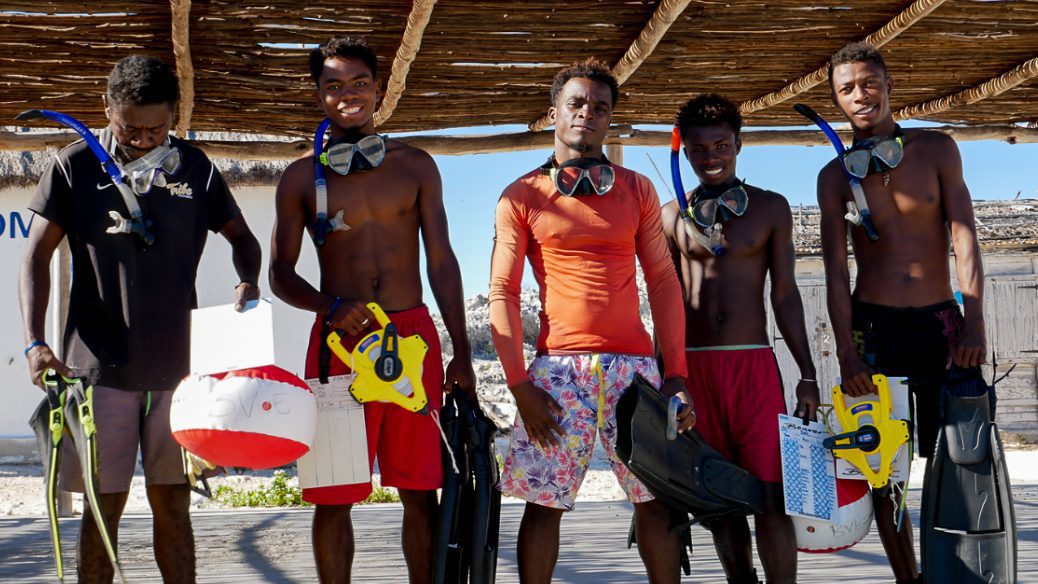
From left to right: Jacks, Ronaldo, Patin, Damasy, Sylvestre | Photo: Tako Solontena
As a result of the scientific training, I have learnt many interesting things, like how life at sea works, the relationship between corals and fish, and how to identify other marine species,” Damasy – member of the Velondriake diving ecological monitoring team
Damasy, along with Sylvestre, Ronaldo and Patin, are all young Vezo fishermen, and are members of the Velondriake Association (the community-led association that manages the LMMA). All four of them have been involved with Blue Ventures’ work in Andavadoaka in some way; Damasy and Ronaldo are former scholars, Patin writes songs and produces music videos with the community outreach team, and Sylvestre is the first Vezo from Andavadoaka to be a member of the prestigious marine conservation institution, IH.SM based in Toliara. Jacks is the eldest of the group and previously worked as an ecoguide in Velondriake and as the Community Liaison Officer for the expeditions programme.
For people living in Andavadoaka, life is not easy. Many families rely on fishing as their main livelihood, but with persistent high winds, strong swells and turbulent fish stocks, incomes are not always guaranteed. The story is no different for the members of the new monitoring team, but now, being involved in ecological monitoring has not only meant earning a stable income, but has also given these men a voice, as Jacks told me, “the impact on my life has been good and I am able to inspire and educate my community”.
Since starting their training, they’ve been present at numerous Velondriake Association meetings and have been able to share their experiences in their own language to their own communities. Just the other day, we went to a community meeting in a village where Patin had some family; everyone listened intently and seemed to give the presentation more credit because of his familiarity.
We need to educate our communities so that they know what is environmentally friendly,” Patin said, “that way, we can protect future generations and also protect our marine resources”.
Through the new ecological monitoring programme, we aim to reduce the time between the moment we collect the data and the moment that the information is fed back to the community. By having an all-Vezo team, this process is already becoming much smoother, and the subsequent discussions around fisheries are more in-depth, challenging and most importantly, impactful.
More benefits for conservation
Whilst our groups of dedicated expedition volunteers were deeply passionate about protecting the marine environment in Madagascar, it would be fair to say that their livelihoods didn’t depend on it. For the new community ecological team, they know that these surveys will have a direct impact on their own futures, “Marine conservation is extremely important to my future,” Ronaldo said, “if we can increase the number of fish, it will be easier for the Vezo people to live here in a more sustainable way”.
Now, through the new science programme, the relationship between the people who collect the data and local marine conservation efforts is much more reciprocal,
It’s great to be part of this marine conservation team because it fits my life. We know the importance of the existence of marine life and also know the consequences of not having it. If we invest in marine conservation, life in the future may be better,” Sylvestre told me.
This in-depth knowledge of and reliance on the ocean has played a vital role throughout the training. All five members of the team have all been fishermen at one time in their life – Patin was a spearfisher, meaning that he would free dive over the reef for his catch.
Whilst James and I began teaching them the hundreds of different fish and benthics, their indigenous knowledge came to the surface. These guys know the reef, they know their fish, their corals and their invertebrates! For them, the training was just a matter of learning the English names, understanding the underlying interrelationships between them and getting to know the methodologies used to survey the reef.
It’s been a rich and reciprocal learning experience for all of us; although I’m the teacher, I’ve learnt so much from my students. For instance, the team could tell me straight away where on the reef we’d be able to find a particular species, or during which season that species is most abundant. Personally, this sharing of knowledge has helped me to feel more prepared to carry out surveys in the Velondriake LMMA, which I hope can continue to be increasingly community-led and supported by traditional Vezo knowledge.
Protecting their inheritance
So far, the team has learnt coral reef and seagrass bed monitoring, but I’d love to extend this to mangroves and complete the holy trinity of tropical ocean habitats; there’s a lot going on with our Blue Forests programme, but at the moment the data collection is mostly done above sea level. There’s also been a lot of interest in the training from other community members across Velondriake but for now, we can only recruit from the village of Andavadoaka because of the pandemic. If and when it’s possible, we’re eager to expand and diversify the team so that we can continue to build local marine monitoring capacity and learn more from the community about their life with the sea to guide local conservation efforts.
The main goal however, is to make sure that the new ecological monitoring team is as independent as possible. By training them to collect their own ecological data, marine monitoring is becoming more sustainable in Velondriake – when crisis strikes, they know that they don’t have to rely on foreign volunteers and can continue to monitor the state of their ocean autonomously. The next steps are to train Sylvestre, Jacks, Damasy, Patin and Ronaldo in data analysis, so that they can feed fisheries data directly back to their communities to support informed sustainable fisheries management decisions.
For the Vezo people of Andavadoaka, life has depended on these rich, tropical waters for generations; it is paramount that they are the ones who will make the decisions on how best to conserve and protect Velondriake’s marine resources for centuries to come – as Damasy eloquently describes,
The resources of these oceans can only be inherited by future generations if we make sure that they are not extinct. The protection of marine life is part of human life.”
A special thanks to my colleague James Paul, who has been my translator and right hand man throughout the ecological training.
Another thanks to the Velondriake Association and to my Blue Ventures colleagues at the Association Support Team (AST), Aquaculture Team, Blue Forest Team, Monitoring, Evaluation & Learning (MEL) Team, Education Team, Fisheries Team and Administration Team.


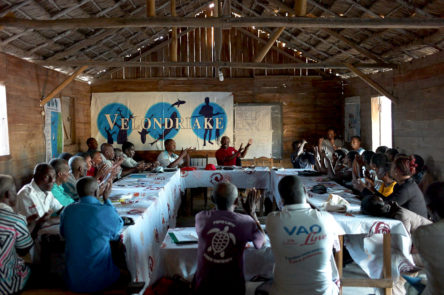
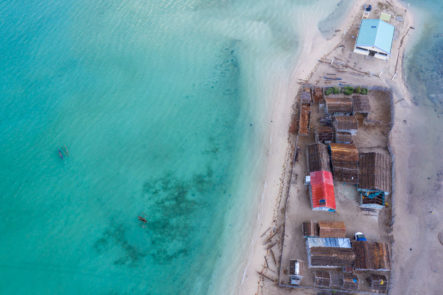
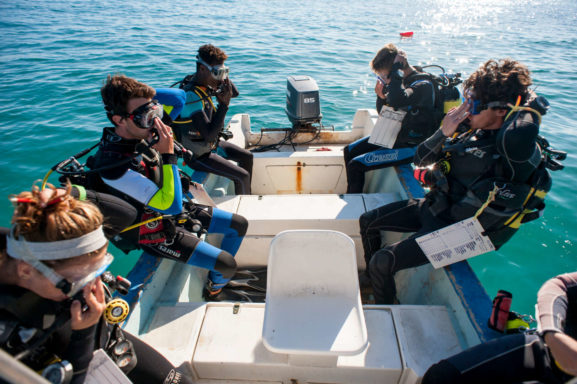
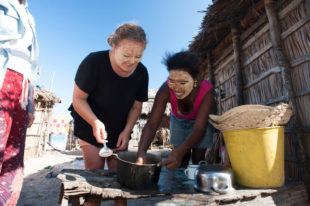
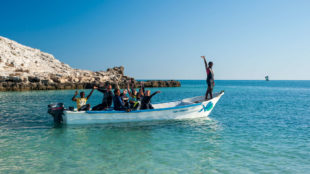
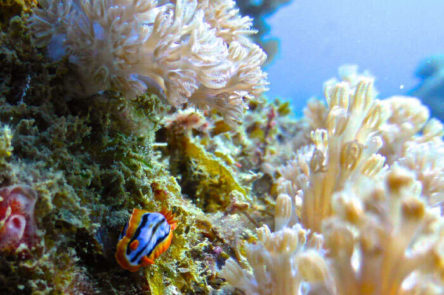
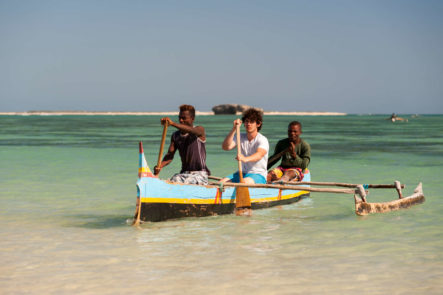
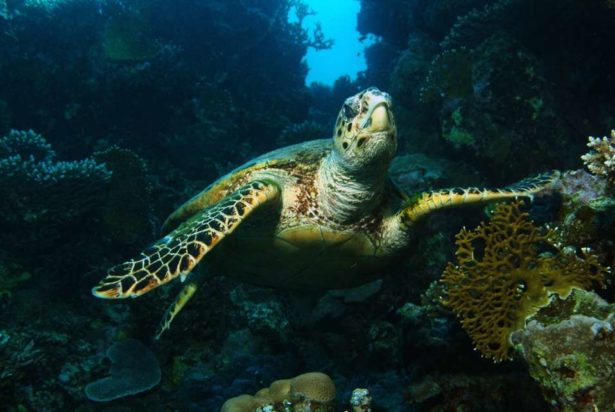
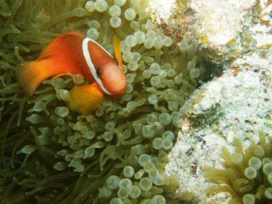
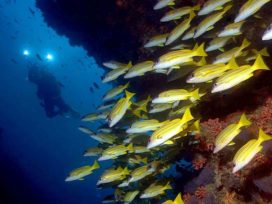
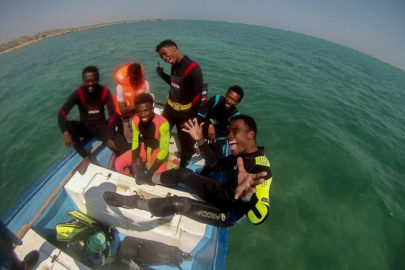
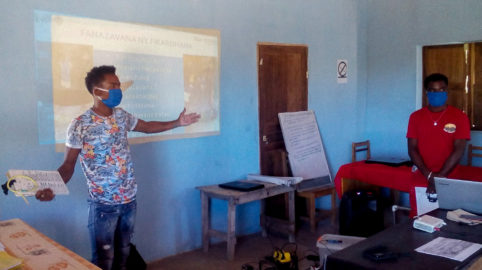
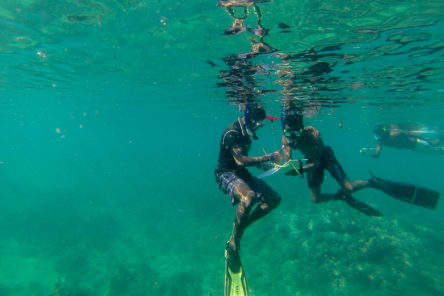
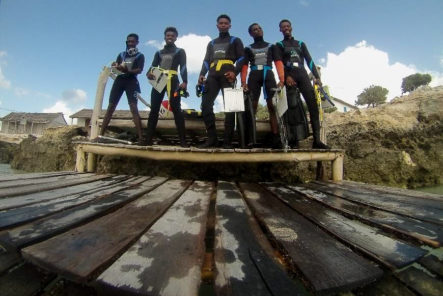
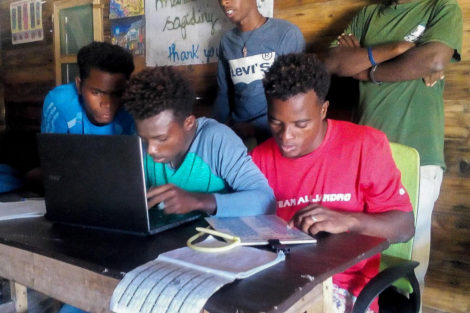
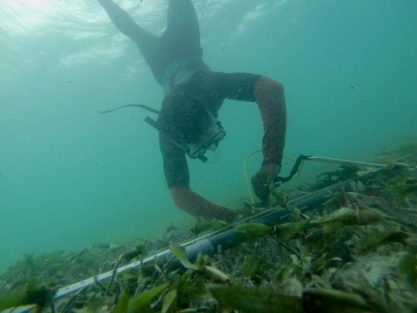
This is a very positive narrative. Keep up the great work!